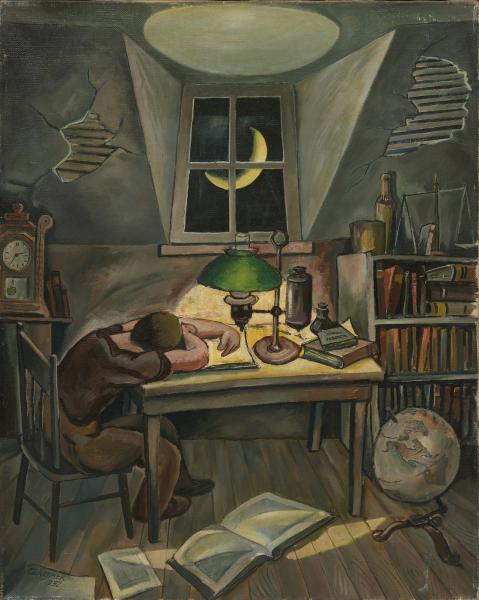Thursday
I’m currently reading Thor Magnus Tangeras’s Literature and Transformation: A Narrative Study of Life-Changing Reading Experiences, thanks to an alert from Oberlin librarian Valerie Hotchkiss. Given that I’ve just finished my own book on literature’s life-changing potential, I found myself strangely defensive when I first started it. Had he beaten me to the punch in talking about the impact of literary immersion?
Thinking about it further, however, made me realize that this is all to the good. When the world is starting to wake up to your ideas, that’s the best time to publish.
I also appreciate it how Tangeras is introducing me to others who have written on the subject that I’ve missed. I share some their observations today and will discuss the book more in upcoming posts.
Although I have heard about novelist Jeanette Winterson’s autobiography, I haven’t read it and and so didn’t realize the degree to which literature came to her rescue. Winterson was raised to be a Pentecostal Christian missionary but came out as a lesbian at 16 and left home. At a time when she was “confused about sex and sexuality, and upset about the straightforward practical problems of where to live, what to eat, and how to do my A levels,” she read T. S. Eliot’s Murder in the Cathedral. The play turned her upside down, especially the lines,
This is one moment,
But know that another
Shall pierce you with a sudden painful joy.
Winterson says the “unfamiliar and beautiful play made things bearable.” She goes on to comment,
I had no one to help me, but the T. S. Eliot book helped me. So when people say that poetry is a luxury, or an option, or for the educated middle classes, or that it shouldn’t be read at school because it’s irrelevant, or any of the strange and stupid things that are said about poetry and its place in our lives, I suspect that the people doing the saying have had things pretty easy. A tough life needs a tough language – and that is what poetry is. That is what literature offers – a language powerful enough to say how it is.
And elsewhere:
Fiction and poetry are doses, medicines. What they heal is the rupture reality makes on the imagination.
Tangeras writes that reading helped Winterson
feel belonging, gave her access to new experiences and helped her deal with hardship: “I felt less isolated. I wasn’t floating on my little raft in the present; there were bridges that led over to solid ground…Literature is common ground.”
Tangeras also notes that literature helped author Rachel Kelly negotiate dark times. In Black Rainbow: How Words Healed Me – My Journey through Depression, Kelly describes how reading poetry
helped her conquer two serious episodes of depression: “It’s no exaggeration to say that poetry proved a lifeline.” She drew strength from the ability of Gerard Manley Hopkins to celebrate the healing powers of nature, and George Herbert’s “Love (3),” which functioned as an antidote to the negative stories that dominated her mind at the time.
Literature and Transformation has put me on to some other great quotations as well, including this one from philosopher Hans-Georg Gadamer’s Truth and Method:
The work of art is not an object that stands over against a subject for itself. Instead the work of art has its true being in the fact that it becomes an experience that changes the person who experiences it.
And:
In the experience of art we see a genuine experience induced by the work, which does not leave him who has it unchanged.
And then there’s Czech literary theorist Jan Mukarovsky, who in the following passage writes about the arts in general but in ways that apply to literature:
The work becomes capable of being closely connected to the entirely personal experiences, images and feelings of any perceiver – capable of affecting not only his conscious mental life but even of setting into motion forces which govern his subconscious. The perceiver’s entire personal relation to reality, whether active or contemplative, will henceforth be changed to a greater or lesser degree by this influence. Hence the work of art has such powerful effect upon man not because it gives him – as the common formula goes – an impression of the author’s personality, his experience and so forth, but because it influences the perceiver’s personality, his experiences and so forth.
In his book, Tangeras sets out to figure out how exactly this influencing works by sharing five extended conversations with readers about their life-changing experiences with specific works. Then, turning to the specialized language of psychology, he looks for patterns in their accounts. More on Tangeras’s book to come.
